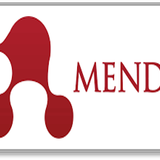The Internal Control And Financial Statements As Moderating Of Ethical Climate
DOI:
https://doi.org/10.24912/ja.v26i3.1046Abstract
This study aims to analyze the effect of the government's internal control system on the government of financial statements quality with the moderating role of the ethical climate of the organization. The survey method was conducted on 80 employees of the planning and finance division of the Maluku Provincial Government who participated in this study. Research data in the form of survey questionnaires were collected and analyzed using smart PLS. The results of this study indicate that the government's internal control system and ethical climate of the organization have a positive and significant effect on the government of financial statements quality. The variable of the government's internal control system has a positive and significant effect on the ethical climate of the organization. The ethical climate of the organization variables can moderate the effect of the government's internal control system on the government of financial statements quality in a positive and significant way.
References
Aifuwa, H. O., Embele, K., & Saidu, M. (2018). Ethical Accounting Practices and Financial Reporting Quality. EPRA International Journal of Multidisciplinary Reseearch (IJMR), 4(12), 31–44.
Ayagre, P. (2017). Public Sector Organisations : A Developing Country. July 2020. https://doi.org/10.24191/mar.v16i2.633.
Azizal, M., Aziz, A., Rahman, H. A., Alam, M., & Said, J. (2015). Enhancement of the Accountability of Public Sectors through Integrity System , Internal Control System and Leadership Practices : A Review Study. Procedia Economics and Finance, 28(April), 163–169. https://doi.org/10.1016/S2212-5671(15)01096-5.
Borry, E. L. (2017). Ethical Climate and Rule Bending: How Organizational Norms Contribute To Unintended Rule Consequences. Public Administration, 95(1), 78–96. https://doi.org/10.1111/padm.12304.
Bradford, A., Luke, B., & Furneaux, C. (2020). Exploring Accountability in Social Enterprise: Priorities, Practicalities, and Legitimacy. Voluntas, 31(3), 614–626. https://doi.org/10.1007/s11266-020-00215-8.
Chen, C., Gotti, G., Kang, T., & Wolfe, M. C. (2018). Corporate Codes of Ethics , National Culture , and Earnings Discretion : International Evidence. Journal of Business Ethics, 151(1), 141–163. https://doi.org/10.1007/s10551-016-3210-y.
Cohen, S., Karatzimas, S., & Naoum, V. C. (2017). The sticky cost phenomenon at the local government level: Empirical evidence from Greece. Journal of Applied Accounting Research, 18(4), 445–463. https://doi.org/10.1108/JAAR-03-2015-0019.
Demirtas, O., & Akdogan, A. A. (2015). The Effect of Ethical Leadership Behavior on Ethical Climate, Turnover Intention, and Affective Commitment. Journal of Business Ethics, 130(1), 59–67. https://doi.org/10.1007/s10551-014-2196-6.
Dewi, N. F., Ferdous Azam, S. M., & Yusoff, S. K. M. (2019). Factors influencing the information quality of local government financial statement and financial accountability. Management Science Letters, 9(9), 1373–1384. https://doi.org/10.5267/j.msl.2019.5.013.
Djalil, M. A., Nadirsyah, & Fatmi, L. (2017). Influence of Implemention of Government Accounting Standard and the Effectiveness of Government’s Internal Control System on the Quality of Local Financial Report and Its Impact Toward the Accountability of Regional Financial Management (A Research on Gov. Researh Journal Of Finane and Accounting, 8(4), 106–114.
Djasuli, M., Triyuwono, I., & Purwanti, L. (2020). Committee of Sponsoring Organization of the Treadway Commission ( COSO ) Framework as a Control Framework Construction Internal Sharia Based. 6603–6610.
Elayan, F. A., Li, J., Liu, Z. F., Meyer, T. O., & Felton, S. (2016). Changes in the Covalence Ethical Quote, Financial Performance and Financial Reporting Quality. Journal of Business Ethics, 134(3), 369–395. https://doi.org/10.1007/s10551-014-2437-8.
Erakovich, R., & Kolthoff, E. (2016). Analysis of Ethical Leadership and Integrity Development in Local Government : The United States , The Netherlands, Montenegro, and Serbia. January 2018. https://doi.org/10.1080/01900692.2015.1053612.
Fox, J. (2016). Surveying sensitive topics. In Randomized response and related methods (Vol. 0, pp. 1-12). SAGE Publications, Inc, https://dx.doi.org/10.4135/9781506300122.n1.
Gamayuni, R. R. (2018). The effect of internal audit function effectiveness and implementation of accrual based government accounting standard on financial reporting quality. Review of Integrative Business and Economics Research, 7(1), 46–58. http://buscompress.com/journal-home.html.
Ghozali, Imam. 2014. Structural Equation Modeling, Metode Alternatif dengan Partial Least Square (PLS). Edisi 4. Semarang : Badan Penerbit Universitas Diponegoro.
Goebel, S., & Weißenberger, B. E. (2017). The Relationship Between Informal Controls, Ethical Work Climates, and Organizational Performance. Journal of Business Ethics, 141(3), 505–528. https://doi.org/10.1007/s10551-015-2700-7.
Hasanah, S., Rumondang, T., & Siregar, S. (n.d.). Pengaruh Penerapan Standar Akuntansi Pemerintah , Sistem Informasi Akuntansi , Sistem Pengendalian Intern , dan Kompetensi Sumber Daya Manusia Terhadap Kualitas Laporan Keuangan OPD di Kabupaten Labuhanbatu Pendahuluan.
Herath, S. K., & Albarqi, N. (2017). Financial Reporting Quality : A Literature Review School of Business Administration. International Journal of Business Management and Commerce, 2(2), 1–14.
Idawati, W., & Eleonora, L. (2020). Penerapan Sistem Pengendalian Intern dan Akuntabilitas Keuangan dalam Mewujudkan Kualitas Laporan Keuangan. Equity, 22(2), 153–172. https://doi.org/10.34209/equ.v22i2.1367.
Julita, & Susilatri. (2018). Analysis of factor affecting the quality of government financial report Bengkalis regency. International Journal of Scientific and Technology Research, 7(2), 157–164.
Kamaliah, K., Marjuni, N. S., Mohamed, N., Mohd-Sanusi, Z., & Anugerah, R. (2018). Effectiveness of monitoring mechanisms and mitigation of fraud incidents in the public sector. Administratie Si Management Public, 2018(30), 82–95. https://doi.org/10.24818/amp/2018.30-06.
Liu, Y., Zhao, S., Li, R., Zhou, L., & Tian, F. (2018). The relationship between organizational identification and internal whistle-blowing: the joint moderating effects of perceived ethical climate and proactive personality. Review of Managerial Science, 12(1), 113–134. https://doi.org/10.1007/s11846-016-0214-z.
MarinaPalimbong, S., Rura, Y., & a, T. (2018). the Effect of Competence of Human Resources and the Use of Information Technology on the Quality of Financial Report With Internal Control System and Organizational Commitment As Moderation Variable. International Journal of Advanced Research, 6(12), 517–525. https://doi.org/10.21474/ijar01/8168.
Myer, A. T., Thoroughgood, C. N., & Mohammed, S. (2016). Complementary or competing climates? Examining the interactive effect of service and ethical climates on company-level financial performance. Journal of Applied Psychology, 101(8), 1178–1190. https://doi.org/10.1037/apl0000119.
Newman, A. (2017). A Review and Research Agenda. November 2019. https://doi.org/10.1017/beq.2017.23.
Newman, A., Round, H., Bhattacharya, S., & Roy, A. (2017). Ethical Climates in Organizations: A Review and Research Agenda. Business Ethics Quarterly, 27(4), 475–512. https://doi.org/10.1017/beq.2017.23.
Nurlis, & Yudiati, W. (2017). The Influence of Internal Control Effectiveness , Information Technology Utilization and Human Resources Competence on Local Government Financial Reporting Quality ( Survey on SKPD Banten Provincial Government and Serang City ). Research Journal of Finance and Accounting, 8(12), 111–124.
Ogbonna, G. N., & Ebimobowei, A. (2012). Effect of Ethical Accounting Standards on the Quality of Financial Reports of Banks in Nigeria. 4(1), 69–78.
Ramandei, P., Rohman, A., Ratmono, D., & Ghozali, I. (2020). Interactions of financial assistance and financial reporting competency: Evidence from local government in Papua and West Papua Indonesia. International Journal of Financial Research, 11(1), 1–12. https://doi.org/10.5430/ijfr.v11n1p1.
Sabiu, M. S., Kura, K. M., Mei, T. S., Hasanur, M., Joarder, R., & Umrani, W. A. (2018). The Mediating Role of Ethical Climate in the Relationship Between Performance Appraisal and Organizational Performance. International Journal of Public Administration, 00(00), 1–12. https://doi.org/10.1080/01900692.2018.1498105.
Said, J., Alam, M. M., & Khalid, M. A. (2016). Relationship between good governance and integrity system: Empirical study on the public sector of Malaysia. Humanomics, 32(2), 151–171. https://doi.org/10.1108/H-02-2016-0008.
Said, J., & Omar, N. (2014). Corporate Integrity System: Comparative Analysis of Two Giant Government Linked Companies. Procedia - Social and Behavioral Sciences, 145(Iim), 12–17. https://doi.org/10.1016/j.sbspro.2014.06.006.
von Walter, B., Wentzel, D., & Tomczak, T. (2016). Securing Frontline Employee Support After an Ethical Scandal: The Moderating Impact of Response Strategies. Journal of Service Research, 19(4), 417–432. https://doi.org/10.1177/1094670516664587.
Downloads
Published
How to Cite
Issue
Section
License
Copyright (c) 2022 Jurnal Akuntansi

This work is licensed under a Creative Commons Attribution-NonCommercial-ShareAlike 4.0 International License.
This journal provides immediate open access to its content on the principle that making research freely available to the public supports a greater global exchange of knowledge.

This work is licensed under a Creative Commons Attribution-NonCommercial-ShareAlike 4.0 International License



















